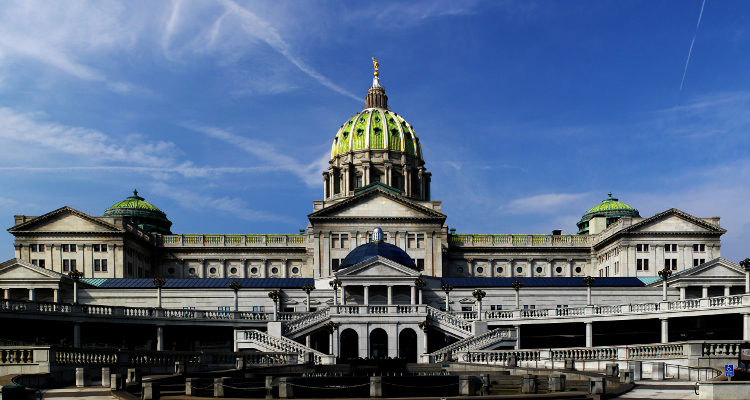In hopes of alleviating a projected $2.2 billion upcoming budget deficit, Wednesday reportedly saw Pennsylvania lawmakers approve expanded gambling legislation that could see the state license up to ten satellite casinos while permitting truck stops to operate a maximum of five slot-style video gaming terminals.
According to a report from the McClatchyDC news service, the legislation is now due to be considered by Pennsylvania Governor Tom Wolf. His signature would additionally see the eastern state join Nevada and Puerto Rico in allowing larger airports to feature gambling facilities.
The news service reported that Wolf’s consent would moreover make Pennsylvania the fourth state alongside Nevada, Delaware and New Jersey to legalize mobile and online gambling with operators being required to pay a $10 million license fee before beginning operations. Licensed firms could then be from anywhere in the world and would be subject to a 52% revenue tax rate on slots with table games liable to a 14% duty.
Finally, Wolf’s sanction would also reportedly legalize daily fantasy sports and permit the Pennsylvania Lottery to expand its portfolio to include instant and raffle games alongside keno while the state’s existing casinos could pay a $10 million fee in order to secure a license for on-site or online sportsbetting.
McClatchyDC reported that the expanded gambling legislation was part of a larger bi-partisan package that had been ‘designed to break a four-month budget stalemate’ with lawmakers hoping that ratification will lead to up to $230 million a year in additional revenues from fees and taxes. As well as alleviating the current budget shortfall, the new cash would furthermore purportedly go towards funding property tax rebates as well as local government treasuries, institutions and development projects.
Regarding the proposed new satellite casinos, the news service explained that licenses for up to 750 slots would cost $7.5 million while operators could add a maximum of 30 gaming tables for an extra $2.5 million. However, the miniature gambling facilities could only be run by existing licensed operators and would have to be located at least 25 miles from a current casino.
McClatchyDC reported that Pennsylvania’s commercial casinos already rake in more gross gaming revenues than any other American state with the exception of Nevada although it sits atop the tax table with last year’s tally standing at $1.4 billion. Despite these figures, numerous members of the Pennsylvania State Senate and Pennsylvania House of Representatives had purportedly argued against the use of Wednesday’s legislation as a way to bring in more funds.
“If you pass this bill, you will see an explosion of gambling in Pennsylvania like you’ve never seen before,” Steve McCarter, a Democrat member of the Pennsylvania House of Representatives from suburban Philadelphia, reportedly warned his fellow legislators. “We will become a gambling state without parallel.”



